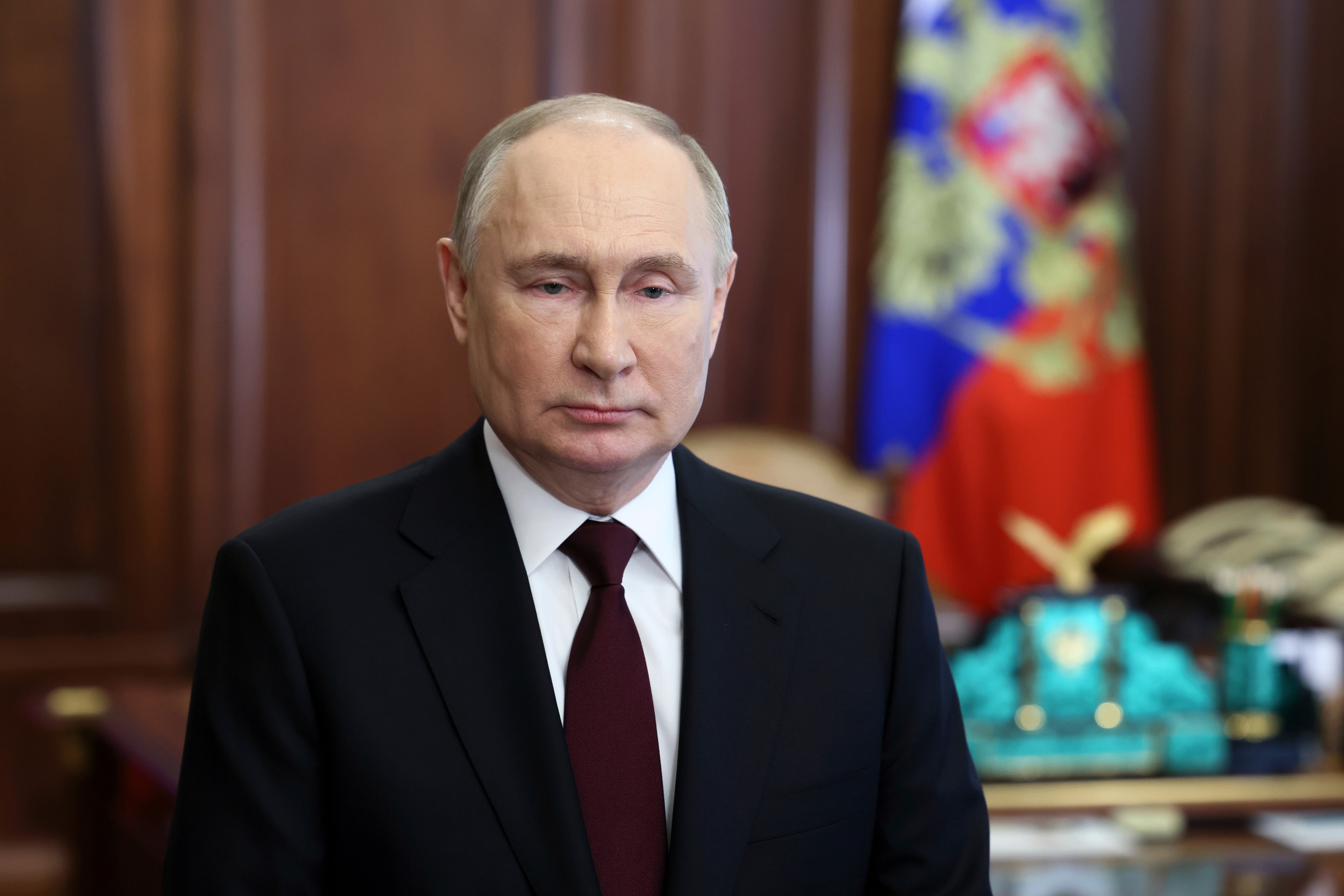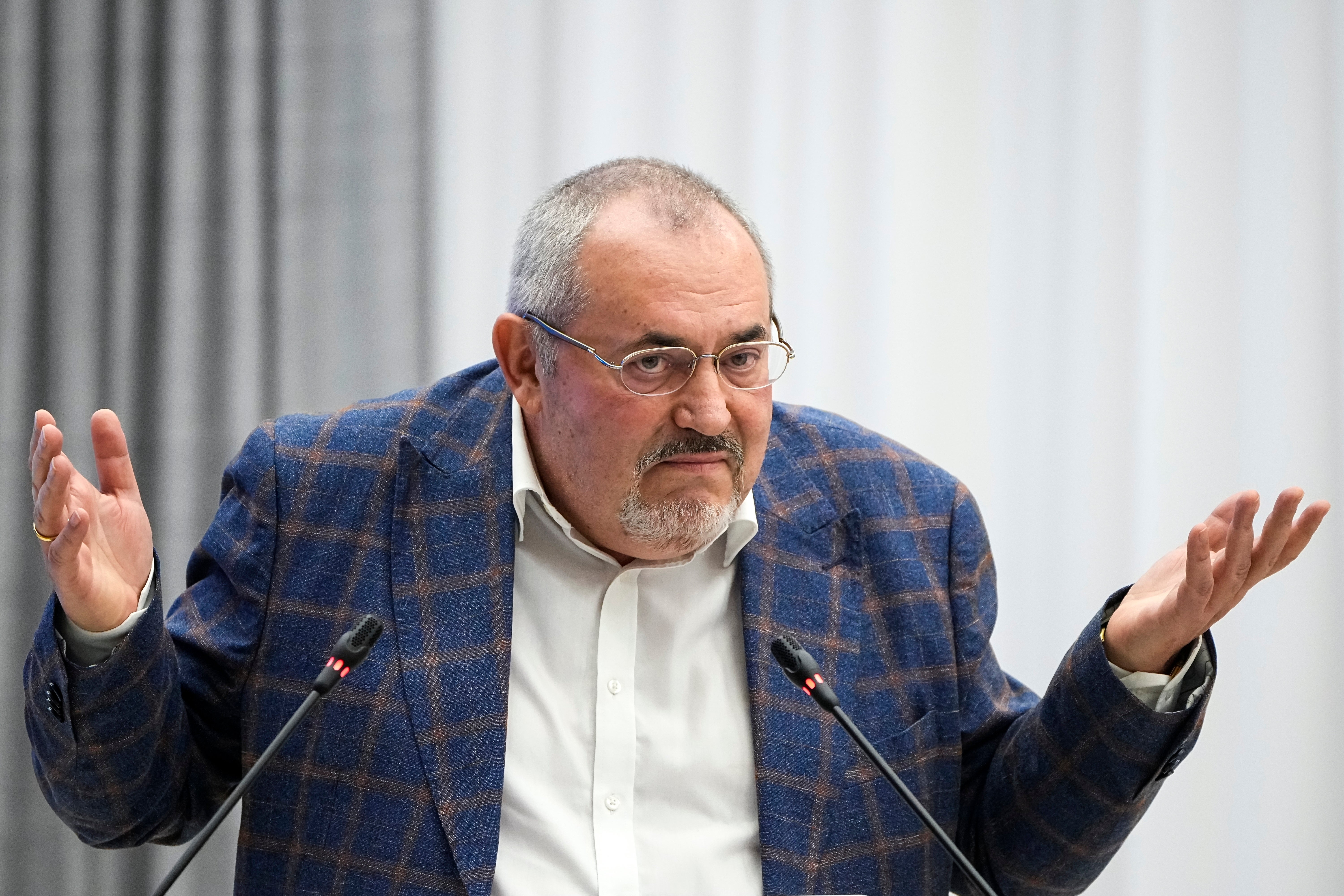Putin’s opposition know his election is a sham. They have a plan for change
Starting with a call for citizens to head to the polls en masse at noon on Sunday – in a symbolic show of dissent – Russia’s opposition begins a new chapter in the wake of the death of Putin’s fiercest critic Alexei Navalny, writes Tom Watling


Your support helps us to tell the story
From reproductive rights to climate change to Big Tech, The Independent is on the ground when the story is developing. Whether it's investigating the financials of Elon Musk's pro-Trump PAC or producing our latest documentary, 'The A Word', which shines a light on the American women fighting for reproductive rights, we know how important it is to parse out the facts from the messaging.
At such a critical moment in US history, we need reporters on the ground. Your donation allows us to keep sending journalists to speak to both sides of the story.
The Independent is trusted by Americans across the entire political spectrum. And unlike many other quality news outlets, we choose not to lock Americans out of our reporting and analysis with paywalls. We believe quality journalism should be available to everyone, paid for by those who can afford it.
Your support makes all the difference.At midday on Sunday, on the last day of the Russian presidential vote, those opposing Vladimir Putin’s repression will answer the final call of Alexei Navalny, the late face of anti-Kremlin opposition.
Russians cannot affect the result of what is a predetermined election, Mr Navalny said two weeks before he was announced dead – but if they turn up at polling stations all at the same time, the Kremlin may glimpse just how many people wish for an end to Putin’s more than two-decade-long grip on the country. This election, for which voting began on Friday, will add another six years to that. It is entirely managed by the Kremlin to do one thing: hand Putin victory. The Russian leader has hardly even bothered to campaign.
More than two years into Putin’s full-scale invasion of Ukraine, intensifying what had already been a widespread crackdown on critics inside Russia, the opposition now faces a new chapter. Western nations have lined up to lay the blame for Navalny’s death at Putin’s door, with his widow Yulia clear that the Russian leader killed her husband – the Kremlin’s fiercest critic.
As well as the killing of Navalny, nearly a thousand other critics and anti-war dissidents have been imprisoned across Russia. Tens of thousands have been arrested simply for protesting. Hundreds of thousands have been forced into exile.
Yulia has taken on her husband’s call to flood voting locations en masse as a symbolic gesture, with protests in the street risking arrest and lengthy prison sentences. On Friday, a number of people were arrested for incidents including pouring green dye into ballot boxes, the boxes or polling booths being set alight and fireworks being set off inside polling stations. Such acts carry stiff jail terms.
Mikhail Khodorkovsky, now an exiled high-profile dissident, was once Russia’s richest man. He co-founded the opposition Anti-War Committee and has been an outspoken advocate of the midday protest set for Sunday. He has called for all those who attend to wear the colours of anti-war Russia, which are white and blue.
“It’s a political act, a political flash mob to show that we are many,” he says.

Russian prosecutors threatened voters who take part in the “Noon Against Putin” action with five years in prison on Thursday. But given there would be no legal reason to disperse those attending polling stations to vote, it is unclear what form a crackdown would take on the ground.
“You cannot change the regime democratically,” Khodorkovsky adds. “It has to change through revolution.” But he realises that will not come quickly and that the chances of success are slim until both Putin dies and the militarisation of Russia is put to a stop.
“The military machine has been set in motion, it is not going to stop very quickly. If it continues manufacturing weapons, mutual trust will not be restored very easily,” he says. “I think that will last at least the next decade.”
But that does not mean giving up. Khodorkovsky says the next chapter of resistance should be three-fold.
“Our objectives must be as follows: helping Russian activists and professionals who want to leave Russia to get out. Their departure from Russia would weaken the Putin regime,” he says, noting how “brain drain” was a major problem for Joseph Stalin’s repressive Soviet regime in the 1930s.
“The second objective should be countering Putin’s propaganda. That will significantly damage his ability to mobilise and conscript soldiers [for the war in Ukraine].

“The third objective is building for Russians a new vision of Russia and its future. Today, they have lost their idea of what they would like to see and what normal life would be. Putin is telling them there is no normality, only confrontation.”
Boris Nadezhdin, a veteran politician who tried to run in this year’s election against Putin, rose from relative obscurity late last year to become the face of the anti-war vote. Independent polls then suggested more than 15 per cent of the Russian population would have voted for him. Perhaps spooked by queues of thousands signing up to support his bid to run, he was banned by Russian election authorities – kept on a tight lead by the Kremlin – with claims that 15 per cent of the signatures were flawed.
The fact that Nadezhdin was allowed to get that far in such a stage-managed election has drawn suspicion from critics that he is being allowed to gain such publicity to give Russia’s democracy a sheen of legitimacy and is merely a part of Putin’s election machine.
But Nadezhdin says he believes the only way to keep fighting against Putin’s repression is to play within the rules. “My strategy is to be in Russia and not to be very sharp in my criticism,” he tells The Independent from his office in Moscow. “I will never criticise Putin as a person. I only criticise what he does with the country.”

Those candidates that have been allowed to run have made little attempt to try to disrupt the status quo and have praised Putin.
“My rating was rising 5 per cent a week,” Nadezhdin says. “I think maybe the Kremlin administration just decided that I would receive too much if I was allowed to run.”
Nadezhdin says his plan now is to endorse another candidate, 40-year-old Vladislav Davankov, running nominally for a liberal, pro-business party, but making little noise – all while Nadezhdin prepares for local parliamentary elections in two years.
Regarding the Navalny-endorsed “Noon Against Putin” campaign, Nadezhdin will not explicitly support it.
“I will say only that my supporters should go to the election stations on Sunday, 17 March, not on Friday or Saturday, but at any time that is convenient to them,” he says.
“I think I have a quite different strategy to [Navalny]. I have criticised Putin’s politics for 20 years but because I have been in Russian politics for 35 years, I know the red lines. I know what I should not do to avoid being put in prison.”
For those in the anti-Putin camp that have done enough to be forced into exile, however, this softball approach is nowhere near enough – and is bound to fail. The strength of the noon protest will give a sense of how to push on.
“We are confident normal peace for Russians is possible for them," Khodorkovsky says. “Our job is to show them that picture.”
Join our commenting forum
Join thought-provoking conversations, follow other Independent readers and see their replies
Comments